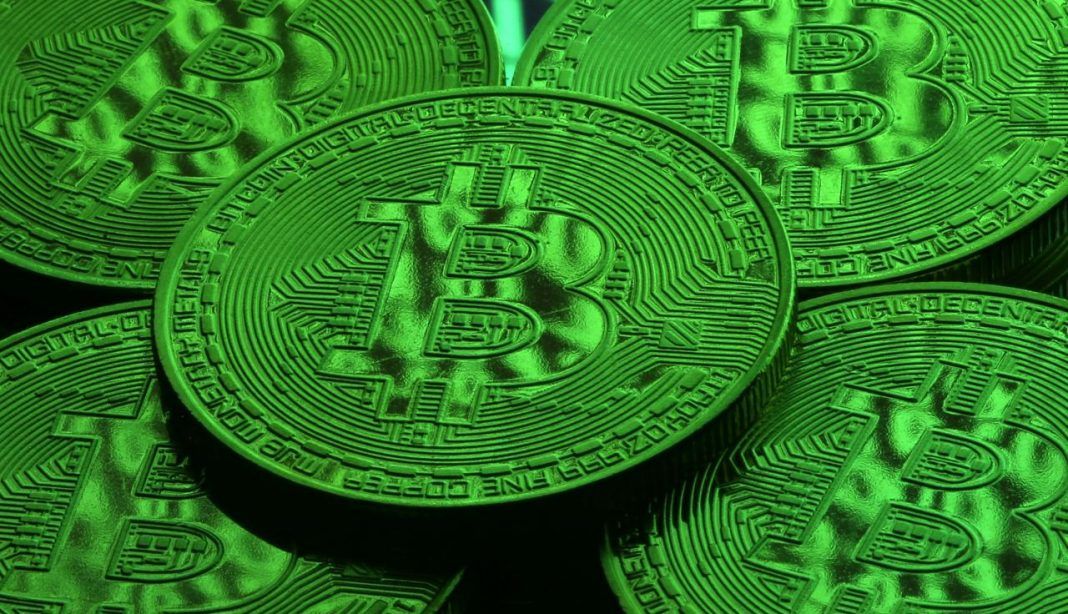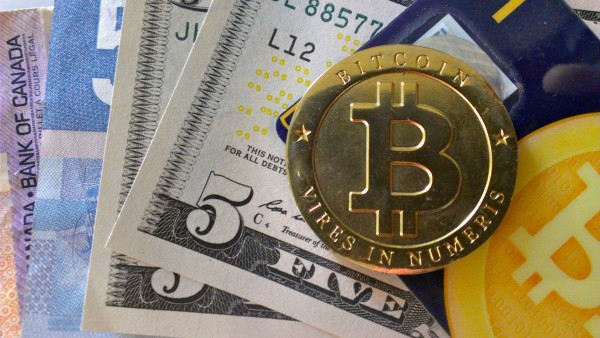
Bitcoin? It’s weird. It’s a trend, it’s a fad, and it’s a financial bubble waiting to pop. It’ll never last. At least that’s what most people who aren’t familiar this new-fangled digital currency would say. The ‘never last’ thing however is contrary to what’s happening today with the recent opening the first Bitcoin exchange in America, Coinbase as well as the recent acceptance of the digital currency in some major stores.
Bitcoin which began in January 2009 is a relatively new concept. The iPad just began in 2010 and now tablets are everywhere. But with Bitcoin, it’s kind of hard to readily accept especially with a lot of real money and resources riding on it. But that’s actually what gives it value, the actual money and resources behind it is substantial and continues to grow. Bitcoin has had its ups and downs. Since it’s basically software, subject to bugs and hacks but through its growing community, the currency has somewhat stabilized earning the confidence of many individuals, organizations and companies.
By December 2014, many large companies in the United States and other countries joined the Bitcoin bandwagon. High profile companies accepting this currency could only increase the confidence of others that Bitcoin actually has a future. Among these companies are major computer vendor Dell, publisher Time Inc., charter jet company Privatefly, software giant Microsoft, blogging website WordPress, travel company Expedia, satellite cable network Dish Network, tech merchant Newegg, online market Atomic Mall, comic book publisher Dynamite Entertainment and game publisher Zynga.
Another milestone in Bitcoin usage happened September 2014 when PayPal announced its acceptance of bitcoins for North American merchants. A Bank of America branch in Boston facilitates transactions and converts deposits to Bitcoin. Even nonprofit organizations such as Burning Man, Greenpeace, Wikimedia and Mozilla Foundation accept Bitcoin donations.
So how are bitcoins obtained? Like gold, bitcoins are ‘mined’ through a lot of distributed computer processing power thus giving it its value. Depending on supply, the actual value fluctuates much like real currency. Anyone can obtain bitcoins by partially or completely offering their computer’s processing resources in helping maintain its online distributed ledger or what is referred to as a block chain. The block chain is a record of transactions of each and every bitcoin created, transferred or spent between individuals and companies. The more bitcoins mined, the more transactions are recorded, then the more processing power is required to mine bitcoins which in turn potentially raises its value.
A much easier and simpler way to obtain bitcoins is by opening an online wallet and trading it for actual goods and services. Sounds simple enough.

Below is a simple history of bitcoin:
- It was first conceptualized in October 2008 in a white paper by a certain Satoshi Nakamoto who is yet to be identified as the pseudonym of either an individual or a group of people.
- Hel Finney, a programmer from Florida received the first bitcoin from Satoshi in January 2009
- A definite exchange rate was established in October 2009 at 1USD = 1,309.03 BTC using the amout of electricity needed to ‘mine’ one bitcoin.
- The first bitcoin market was established in February 2010
- The bitcoin encryption patent was approved in February 2010 giving security to the digital currency
- The first real world transaction happened in Jacksonville Florida when 10,000 BTC was used to order a pizza which cost 25 USD.
- Bitcoin gains headway through news website Slashdot on July 2010 and its value increases tenfold. The MtGox bitcoin currency exchange is also established.
- A bug generated 184 billion bitcoins in August 2010 raising doubt in the system
- The potential of bitcoin to be used in terrorist funding or money laundering earns it a warning from the Financial taskforce in October 2010. Bitcoin also records its first short sale
- Bitcoin economy reaches 1 million USD on November 2010
- January 2011, online market Silk Road opens using bitcoins in sales transactions for drugs.
- 25% of total possible bitcoins have been generated also on January 2011
- February 2011, 1BTC = 1USD. One person offers a car for 3000 BTC
- MtGox is sold to Japanese Tibane Company on March 2011. Brazil and Britain also join in trading.
- Time publishes article on Bitcoin on April 2011 increasing awareness of the currency. Bitcoin comes at par with the euro and bitcoin stock amounts to 10 million USD
- Bitcoin reaches 10USD per BTC on MtGox on June 2011 and later surges up to 31.91USD then suddenly dropping back to 10USD. This event is known as the Great Bubble identifying bitcoin as a volatile currency. Later that month, a major breach causes Mt.Gox to devalue its bitcoins down to 0.01USD. Other markets stop trading for security reviews. On the same month 25,000 BTC is stolen from a bitcoin forum member valued at 375,000 USD.
- Another exchange MyBitcoin loses 150,000 BTC worth 2 million USD on August 2011. First bitcoin conference is held in New York
- First physical bitcoins minted on September 2011
- Second largest bitcoin exchange Tradehill shuts down February 2012
- FBI report on use of bitcoins for weapons and drugs trade leaked on May 2012
- Bitcoin Foundation for implementing core development and security and to oversee the dgital currency is founded September 2012
- First European bitcoin bank Bitcoin Central is licensed December 2012
- Bitcoin reaches 30USD on February 2013
- March 2013, an unexpected fork occurred in the block chain. What was supposed to be one block chain became two and transactions were temporarily halted. Later that month, bitcoin value surges up to 74.90 USD and reaches a market cap of 1 Billion USD.
- Bitcoin value reaches 100 USD on April 2013 and later reaches 266 USD
- First Bitcoin ATM is unveiled on May 2013 further solidifying the currency. US Bitcoin startup Coinbase receives 5 million investment.
- Bitcoin is recognized as a currency by Texas judge on August 2013. Bitcoin ticker started by Bloomberg. Bitcoin is also considered as private money in Germany.
- FBI shuts down Silk Road on October 2013 resulting in a price drop down to 128 USD. Bitcoin reaches China when Baidu search engine begins acceptance.
- Bitcoin value reaches 1242 USD in November 2013 and surpasses Western Union in money transfers
- China bans bitcoin transactions in December 2013 forcing Baidu to stop accepting bitcoins
- Mt Gox files for bankruptcy on February 2014 citing technical issues and reports a total of 744,000 bitcoins stolen raising fears of a major bubble in the digital currency.
- Japan and Singapore set regulations for bitcoin in March 2014. MtGox blames hackers for lost bitcoins. Cyberattacks on various bitcoin exchanges continue.
- April 2014, China begins crackdown of bitcoin transactions. Australia Launches bitcoin ATMs
- July 2014, Dell starts accepting Bitcoins as payment
- September 2014, PayPal steps up bitcoin acceptance
- December 2014, Microsoft and Time starts accepting bitcoin as payment
- January 2015, Coinbase opens the first US bitcoin exchange
As you have read, you’re in for a roller coaster ride if you enter the world of bitcoin. Come to think of it, its behavior has much in common with the stock market. Each bitcoin is like a share in a large growing company except there are no brokers, only exchanges. It even acts like physical money with its banks or exchanges getting robbed, not by men with guns but by hackers. Will bitcoin go away? It seems to have stabilized for now and gradually coming to its own. If you’re familiar with the stock market and if you’re a risk taker looking for an investment, feel free to jump in. So far there does seem to be a future in bitcoin. Big business players are already cashing in, even the black market. It’s only a matter of time before others follow.

